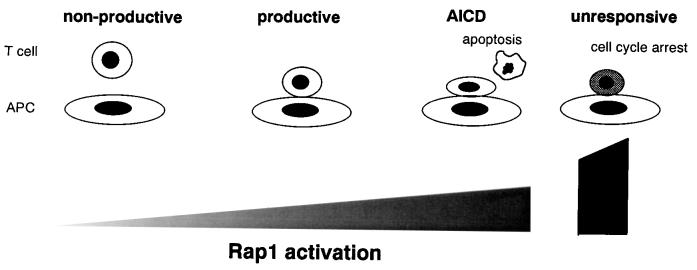FIG. 8.
Spectrum of immunological responses modulated by Rap1. It can be seen that low levels of Rap1 activation do not induce T-cell-APC adhesive interactions via LFA-1-ICAM-1, resulting in a nonproductive T-cell response. Appropriate Rap1 activation does induce stable T-cell-APC association, leading to full T-cell activation. Overactivated Rap1 enhances T-cell-APC interactions and precipitates T cells into AICD. Extremely accumulated active Rap1 causes cell cycle arrest and renders T cells unresponsive to antigen stimulation.

